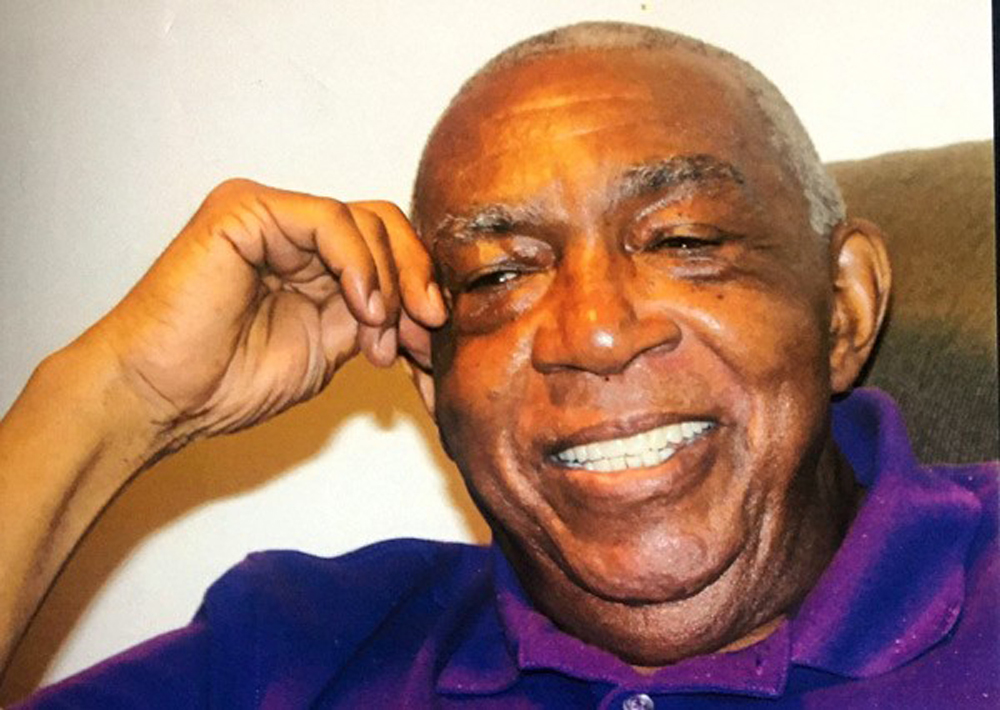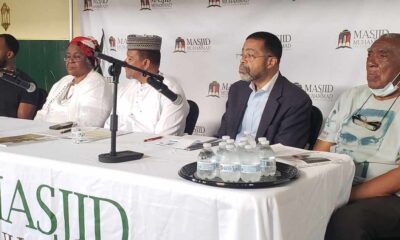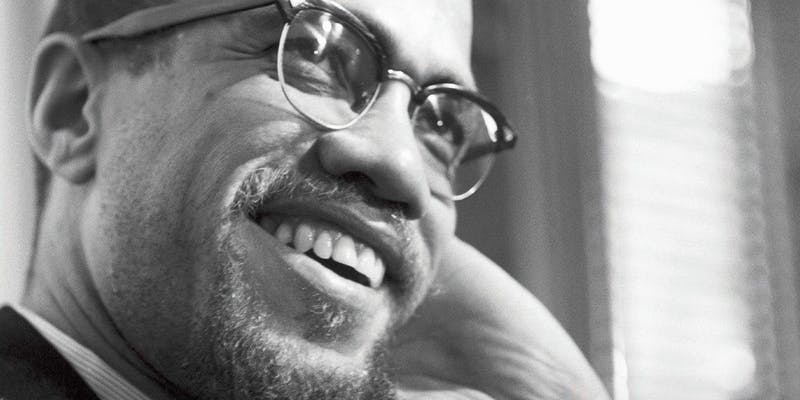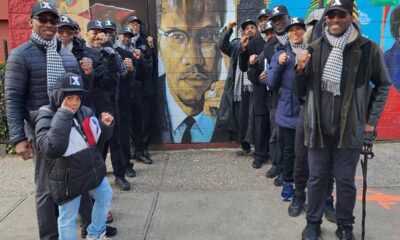Interview
Our Time Press Q & A with… A. Peter Bailey On Malcolm X and Pan-Africanism

A. Peter Bailey was born in Columbus, Georgia, and was raised in Tuskegee, Alabama. Bailey served in the U.S. Army from 1956-1959 and attended Howard University. In 1962, Bailey moved to Harlem and became a founding member of Malcolm X’s Organization of Afro-American Unity (OAAU), where he was editor of the OAAU newsletter, Blacklash. From: A Generation Found: Precious Pearls of Wisdom by Roohee Marshall
Our Time Press: Pan-Africanism. Could you define it and then tell me why you’re writing this book about Malcolm and Pan-Africanism?
A. Peter Bailey: Pan-Africanism is the belief that people of African descent need and must have an economic, political, cultural, and spiritual connection with each other. Because no matter where people of African descent are in the world, because we are so spread out, we are treated like second-class citizens. Whether it’s Europe, Asia, South America, or North America, the only way we’re going to get around it is if we develop a strong sense of togetherness. I’m not basing it as a romantic or emotional thing on a very practical level. That’s the only way we’re going to improve the position of people of African descent in the world that we live in.
OTP: Now, your book is about Malcolm and Pan-Africanism. Could you tell us the title and what brought Malcolm to Pan-Africanism?
APB: The book’s title is “Brother Malcolm X’s Visionary Strategic Pan-Africanism,” and the subhead is “Why It Enraged the FBI and the CIA.” And I’m doing this because this country often tries to take Brother Malcolm’s assassination as just another case of Black-on-Black homicide. They almost totally ignored the role of the government, the federal government, and how they feared Malcolm and what he was doing.
OTP: How did Malcolm come to Pan-Africanism?
APB: His Pan-Africanism came because of his mother, a strong Pan-Africanist. When they were out in Michigan, his mother, Louise Little, was a correspondent for Marcus Garvey’s newspaper. And, of course, his father, who won a race in Georgia, was always a fighter against White Supremacy, even then, the fact he had to leave Georgia partially because of what he was doing there as a Black man. First, he went to Canada, and then he came to Michigan. And so, it was something that was in his family.
OTP: You said Malcolm’s vision; what role did Malcolm see Pan-Africanism in building U.S. Black wealth and political power?
APB: He saw Pan-Africanism as a way for us to build and protect ourselves in this society by building ourselves up here in North America and connecting us with people of African descent, especially on the continent. Now, he never said that directly in the way I heard him. Still, I believe that the fate of people of African descent around the world is tied to the people on the continent and the people of African descent in North America becoming serious about working with each other and becoming serious Pan-Africanists. If we get it, Pan-Africanism would automatically spread into South America and the Caribbean and the parts of Asia where there are people of African descent.
The key to this is African people on the continent and people of African descent in North America getting together. That’s what Brother Bailey & Malcolm believed. I was the editor of the Blacklash newsletter, and I’d been bugging him about writing an article just for the Blacklash. And on February 20th, the day before he was assassinated, he came into the office and gave me the article to run in the next issue. And one thing he talked about very strongly was the necessity of Pan-Africanism and that our fates were completely tied together.
OTP: What would a Pan-African connection look like?
APB: It would be very similar to the Jewish community today. If you’re Jewish, no matter where you are, you still have a connection to Israel.
Our connection to Africa should be the same. We should be able to go back and forth with each other, deal with each other, and support each other here and internationally to act as a unit. Now, that doesn’t mean we’re going to be on the same page on every single issue at every moment, but we would get together and discuss issues and then come up with some African form of response.
It’s where people of African descent in North America and on the continent of Africa advance the interests of Black people throughout the entire world.
OTP: Why don’t other groups need Pan in front of their racial group, like Pan-Chinese or Pan-Japanese, etcetera?
APB: Mainly because, for instance, the Chinese. Every indication I see, people of Chinese descent in this country have a strong connection of some kind, whether emotional or psychological, with China. They have it already. You see, with us, because we were split, those of us who were brought to North and South America, we were completely taken away from everything that we were familiar with.
The enslaved Africans were taken and brought to a different place where we had no connection, no familiarity, both in North America and South America. And for many years, even when the enslaved people got free, they should not use the word African in any of their names, like the African Methodist Episcopal Church. Somehow in the early 1900s, Black organizations began separating themselves from that African connection.
And it’s been a hard job to get us back to it. Now, on the continent, it’s the same thing happening. The African people on the continent will try to use them in their battles and fights with their local enemies instead of looking upon those people coming in, the Europeans, as somebody that we got to watch out for.
If I had a local ethnic group in Africa and I had a problem with another group of Africans, we would ally ourselves with the Portuguese against our fellow Africans when the Portuguese came in. And the European invaders became aware of this, so they would go in and support one group of Africans against another.
Even though the Europeans were killing each other and doing all kinds of terrible things to each other, if a bunch of Africans had gone into Europe with the idea of colonizing Europe, the Europeans would have stopped fighting each other and banded together in getting them out.
OTP: What made it so easy for the Europeans to come in and be divisive?
APB: It wasn’t easy. But they could do it because I always say this, and I developed this from being around Brother Malcolm and others. I believe the Europeans were the first group of people to think racially. “We are white; we are Europeans.” I don’t think that the Africans thought racially. They thought ethnically, “I’m a Yoruba.” “I’m an Eritrean.” “I’m a Muslim,” and they fought like. But when outsiders come in, and you allow them to help you fight your local opponent, they weaken everybody. By the time you become aware, they’re all over the place.
OTP: The Europeans were thinking racially in terms of color, and the Africans were thinking ethnically in terms of other tribal situations.
APB: Yes. I am Yoruba, and I’m having problems with these Igbos. So, here comes these Europeans; they got guns; let me get them to help me fight. Once in there, then they turn on you. There were Africans who fought the Europeans, you don’t hear about them, but they were never able to get enough of a unity where the continent said to itself, “Hey, we are Africans; we got to get these people out of here.”







